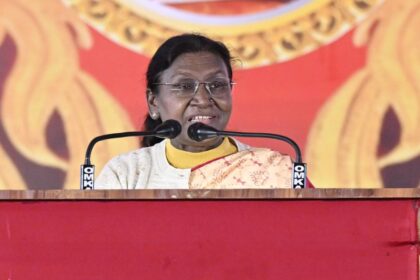||Black and White Digital News ||
||Parvinder Singh May 22, 2024||
In a significant judicial development, the Supreme Court of India on May 20 dismissed a Public Interest Litigation (PIL) challenging the constitutional validity of three newly enacted criminal laws. A vacation bench comprising Justices Bela Trivedi and Pankaj Mithal dismissed the plea, emphasizing that the laws had not yet come into effect. This decision marks a crucial moment in the ongoing debate over India’s evolving criminal justice system.
*The New Criminal Justice Bills: A Paradigm Shift*
The three contentious laws—the Bharatiya Nyaya (Second) Sanhita, 2023, Bharatiya Nagarik Suraksha (Second) Sanhita, 2023, and the Bharatiya Sakshya (Second) Bill, 2023—received presidential assent on December 25, following their passage in Parliament on December 21. These new statutes are poised to replace the venerable Indian Penal Code (IPC), the Criminal Procedure Code (CrPC), and the Indian Evidence Act, laws that have governed India’s criminal justice system for over 150 years.
The central government announced in February that these laws would come into force starting July 1, 2024. Their introduction, according to Home Minister Amit Shah, aims to decolonize Indian laws and significantly reduce delays and pendency in the criminal justice system.
*The PIL and Its Contentions*
Filed in January 2024, the PIL sought the Supreme Court’s intervention to establish an expert panel, chaired by a former Supreme Court judge, to scrutinize the viability of these laws. The petitioner also called for a stay on their implementation, citing concerns over their potential impact.
“The main motive of the Bills was to decolonize Indian laws, but contrary to this intention, the same laws are being repeated with no new explanations, alongside additional powers granted to the police,” the PIL argued. It contended that these changes could instill fear among citizens and infringe on fundamental rights.
Moreover, the plea highlighted procedural concerns, alleging that the laws were passed without sufficient parliamentary debate. Many members of Parliament were suspended during the session, potentially compromising the legislative process. The PIL further criticized the nomenclature of the new laws, arguing that the titles—Bharatiya Nyaya Sanhita, Bharatiya Nagarik Suraksha Sanhita, and Bharatiya Sakshya Adhiniyam—did not accurately reflect their content or purpose.
*Key Provisions and Reforms*
Despite the controversies, the new criminal laws introduce several noteworthy reforms. The Bharatiya Nyaya Sanhita retains most offences from the IPC but includes significant modifications, such as the introduction of community service as a form of punishment. Notably, the offence of sedition has been removed, replaced by a new provision targeting acts that endanger India’s sovereignty, unity, and integrity.
*Judicial and Legislative Responses*
The Supreme Court’s dismissal of the PIL underscores the judiciary’s stance on the matter, at least until the laws come into force and their practical implications can be assessed. Meanwhile, Home Minister Amit Shah has defended the legislative overhaul, asserting that the new laws will expedite the judicial process and enhance the efficiency of the criminal justice system.
As the July 1 implementation date approaches, the debate surrounding these laws is likely to intensify. Legal experts, civil rights activists, and policymakers will closely monitor how these changes impact the justice system and society at large.
*Conclusion*
The Supreme Court’s recent ruling on the PIL challenging the new criminal laws marks a pivotal moment in India’s legal history. As the nation stands on the cusp of potentially transformative changes to its criminal justice system, the discourse surrounding these laws will continue to shape their future trajectory. Whether these reforms will achieve their intended goals of decolonization and judicial efficiency remains a question that only time and experience can answer.
Leave a comment
You Might Also Like
Airport Authority Warns Of Possible Flight Delays, Changes Due To Dense Fog
Airport Authority Warns Of Possible Flight Delays, Changes Due To Dense Fog Pause The Airport Authority of India (AAI) has…
2 Min Read
President Assents To Viksit Bharat–G RAM G Act, Rural Employment Guarantee Raised To 125 Days
President Assents To Viksit Bharat–G RAM G Act, Rural Employment Guarantee Raised To 125 Days Pause In a major reform…
4 Min Read
The RSS Whose Ideology BJP Follows Did Not Hoist the Indian Flag at Its Office for 50 Years: T.S. Tony
The RSS Whose Ideology BJP Follows Did Not Hoist the Indian Flag at Its Office for 50 Years: T.S. Tony…
0 Min Read
CM Omar Abdullah Flags LG Manoj Sinha Interference in J&K Governance, Says Centre Supportive Except On Statehood
CM Omar Abdullah Flags LG Manoj Sinha Interference in J&K Governance, Says Centre Supportive Except On Statehood #OmarAbdullah #JammuAndKashmir #JKPolitics…
0 Min Read









